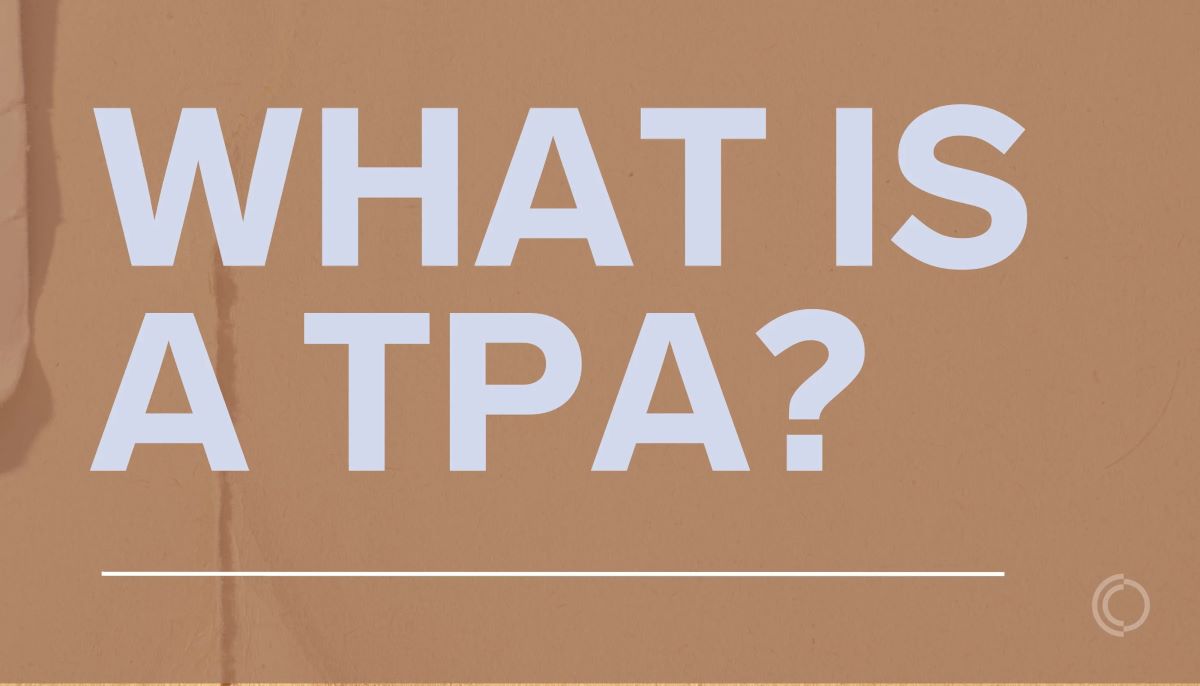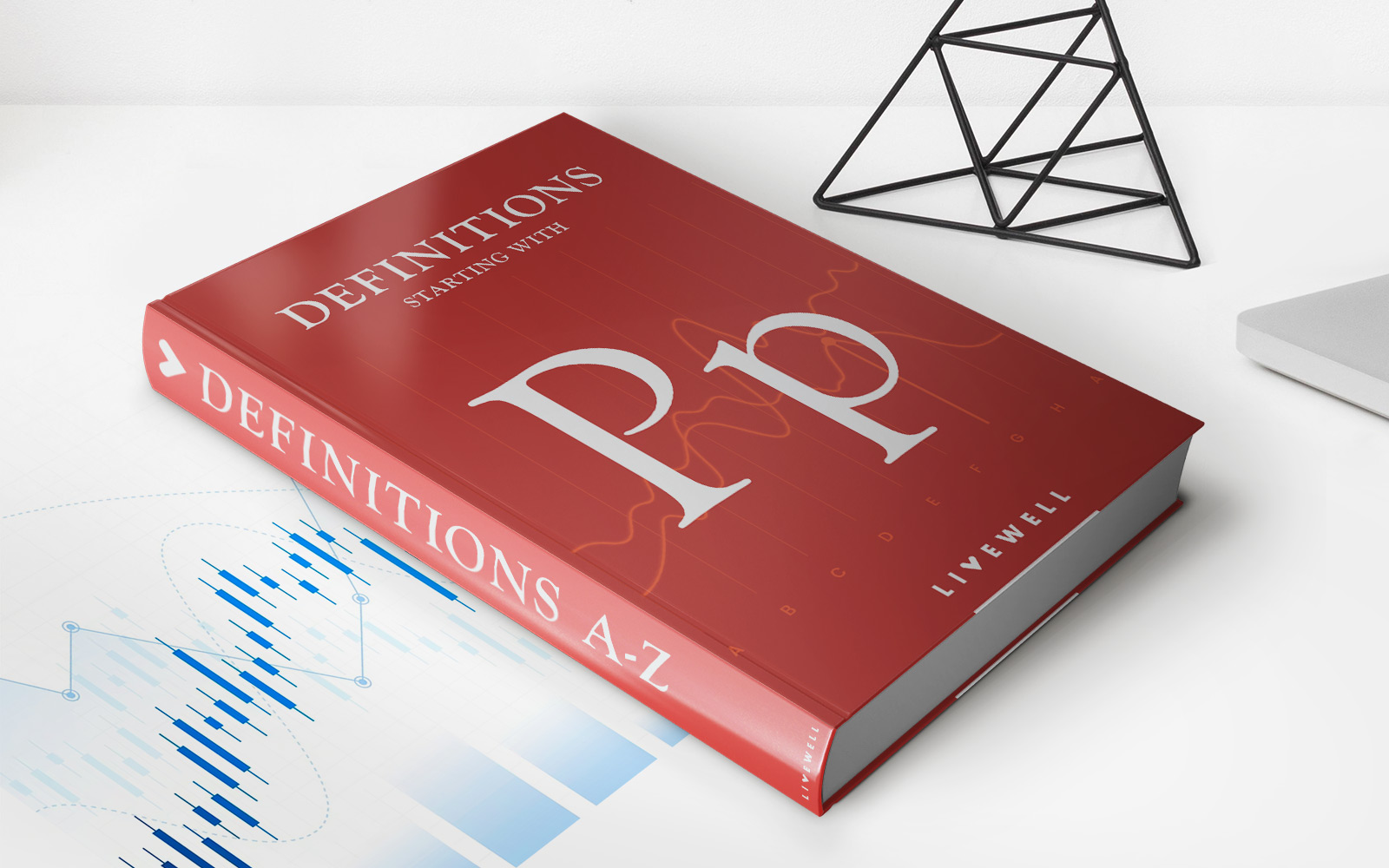Home>Finance>Who Is The Plan Administrator For Health Insurance?


Finance
Who Is The Plan Administrator For Health Insurance?
Modified: December 30, 2023
Discover the role of a plan administrator for health insurance and how they handle financial aspects to ensure smooth operations. Learn more about finance in health insurance.
(Many of the links in this article redirect to a specific reviewed product. Your purchase of these products through affiliate links helps to generate commission for LiveWell, at no extra cost. Learn more)
Table of Contents
Introduction
When it comes to health insurance, understanding the various roles and responsibilities can be crucial in navigating the complex healthcare landscape. One important role in the health insurance industry is that of the plan administrator. The plan administrator serves as a central figure in managing and overseeing the administration of a health insurance plan. In this article, we will explore who the plan administrator is and why their role is significant in the realm of health insurance.
A plan administrator is an entity or an individual that is designated by the health insurance plan to handle the day-to-day operations and management of the plan. They act as the intermediary between the insurance company and the plan participants, ensuring that the plan operates smoothly and according to the terms and conditions outlined in the insurance contract. The plan administrator plays a vital role in facilitating communication, coordinating benefits, and addressing any issues or concerns that plan participants may have.
This role is especially important in situations where the health insurance plan is provided by an employer or organization. In such cases, the plan administrator is typically a representative of the employer or a designated administrative entity responsible for managing the employer-sponsored health insurance plan.
The responsibilities of a plan administrator can vary depending on the type of health insurance plan and the specific terms outlined in the insurance contract. However, some common responsibilities typically include:
- Enrollment and eligibility verification of plan participants
- Managing premium payments and billing
- Coordinating coverage for medical services and procedures
- Communicating with plan participants regarding benefits, claims, and any changes to the plan
- Resolving issues or disputes related to coverage or claims
- Ensuring compliance with applicable laws and regulations
Plan Administrator Defined
The term “plan administrator” is defined under the Employee Retirement Income Security Act (ERISA), which governs many employer-sponsored health insurance plans. According to ERISA, the plan administrator is the person or entity specifically designated in the plan documents as having the responsibility for the administration of the plan.
The plan administrator can vary depending on the type of health insurance plan. In some cases, the employer may take on the role of the plan administrator. In other instances, the employer may appoint a third-party administrator (TPA) to handle the administrative tasks. Additionally, for individual health insurance plans purchased through the marketplace, the insurance provider itself may serve as the plan administrator.
It is important to note that the plan administrator is not always an individual person but can also be a group or an organization. However, regardless of who fulfills the role, the plan administrator has a fiduciary duty to act in the best interest of the plan participants and to ensure compliance with applicable laws and regulations.
The plan administrator is responsible for managing various aspects of the health insurance plan, such as enrolling plan participants, collecting premiums, and coordinating benefits. They also play a critical role in ensuring that the plan is administered in accordance with the terms set forth in the plan documents.
Furthermore, the plan administrator is also responsible for providing certain notices and disclosures to plan participants, such as the summary plan description (SPD). The SPD contains important information about the plan, including eligibility criteria, coverage details, and claims procedures. This document helps plan participants understand their rights and obligations under the plan.
In summary, the plan administrator is the designated entity or individual responsible for the administration of a health insurance plan. They have a fiduciary duty to act in the best interest of the plan participants and ensure compliance with applicable laws and regulations. The plan administrator plays a crucial role in managing the day-to-day operations of the plan and providing necessary information to plan participants.
Responsibilities of the Plan Administrator
The plan administrator plays a pivotal role in managing the administration of a health insurance plan. Their responsibilities encompass a wide range of tasks that are essential for the smooth operation of the plan and ensuring that plan participants receive the benefits they are entitled to. Let’s explore some of the key responsibilities of the plan administrator.
Enrollment and Eligibility Verification: One of the primary responsibilities of the plan administrator is to handle the enrollment process for plan participants. They collect and review enrollment forms, verify the eligibility of individuals to participate in the plan, and maintain accurate records of plan participants.
Premium Payments and Billing: The plan administrator is responsible for managing premium payments from plan participants. They handle the billing process, facilitate the collection of premiums, and ensure that payments are credited accurately and in a timely manner.
Claims Processing and Benefit Coordination: Another crucial responsibility of the plan administrator is to process and coordinate claims for medical services and procedures. They review claims for accuracy, determine coverage levels, and facilitate the payment of benefits to healthcare providers on behalf of plan participants.
Communication with Plan Participants: The plan administrator serves as a point of contact for plan participants. They communicate important information about the plan, such as changes in coverage, updates to benefits, and any relevant policy changes. Additionally, the plan administrator addresses inquiries and concerns from plan participants regarding their coverage or claims.
Resolution of Issues or Disputes: In the event of coverage disputes or issues, the plan administrator plays a critical role in resolving conflicts. They investigate claims disputes, work with healthcare providers to address billing discrepancies, and provide guidance to plan participants on appeal processes if their claims are denied.
Compliance with Laws and Regulations: The plan administrator is responsible for ensuring that the health insurance plan complies with all applicable laws and regulations. They stay updated on changes in healthcare legislation and make necessary adjustments to the plan to remain compliant.
Reporting and Disclosures: The plan administrator is also responsible for providing certain reports and disclosures to regulatory authorities and plan participants. This includes the distribution of the summary plan description (SPD), a document that outlines the key provisions of the plan, and other required notices and disclosures.
These are just a few examples of the many responsibilities that the plan administrator assumes. Their role is vital in managing the day-to-day operations of the health insurance plan and ensuring that plan participants receive the coverage and benefits they are entitled to.
Determining the Plan Administrator for Health Insurance
The determination of the plan administrator for health insurance depends on the type of health insurance plan and the specific arrangements made between the insurance provider and the organization offering the plan. Let’s explore the different scenarios to understand how the plan administrator is determined.
Employer-Sponsored Health Insurance: In many cases, for health insurance plans offered by employers, the employer itself acts as the plan administrator. This means that the responsibility for managing the plan falls on the employer or their designated representative. The employer may have an in-house administrative team or outsource these duties to a third-party administrator (TPA).
Third-Party Administrators (TPAs): In some instances, employers may hire TPAs to handle the administrative tasks associated with the health insurance plan. TPAs are external organizations that specialize in managing health insurance plans on behalf of employers. They take on the responsibilities of the plan administrator, including enrollment, premium collection, claims processing, and communication with plan participants.
Insurance Provider as the Plan Administrator: For individual health insurance plans purchased through the marketplace or directly from insurance providers, the insurance provider itself typically serves as the plan administrator. This means that they are responsible for managing the day-to-day operations of the plan, including enrollment, premium collection, claims processing, and customer service.
Self-Funded Health Insurance Plans: In the case of self-funded health insurance plans, where the employer assumes the financial risk for providing healthcare benefits, the employer acts as the plan administrator. They are responsible for managing the plan’s administration, including designing the plan, handling claims, and coordinating benefits.
The determination of the plan administrator is usually outlined in the plan documents and insurance contracts. These documents identify the designated entity or individual responsible for the administration of the plan and outline their specific responsibilities and obligations.
It is important for plan participants to be aware of who the plan administrator is, as they will be the primary point of contact for any queries, concerns, or claims. The plan administrator’s contact information is typically provided to plan participants, along with other relevant details, such as customer service phone numbers, email addresses, or online portals for accessing plan information.
In summary, the determination of the plan administrator for health insurance depends on the type of plan and the contractual arrangements made between the insurance provider and the organization offering the plan. Employers often act as plan administrators, either directly or through the use of third-party administrators. In individual plans, the insurance provider typically assumes the role of the plan administrator.
Importance of the Plan Administrator
The plan administrator plays a crucial role in the efficient operation of a health insurance plan. Their importance lies in their ability to manage the day-to-day administration of the plan, ensure compliance with regulations, and provide support to plan participants. Let’s explore some key reasons why the plan administrator is important.
Effective Plan Management: The plan administrator is responsible for managing various aspects of the health insurance plan, including enrollment, premium collection, claims processing, and communication with plan participants. They ensure that the plan operates smoothly, and that participants receive the benefits they are entitled to.
Expertise and Knowledge: The plan administrator possesses expertise and knowledge in health insurance policies, regulations, and processes. They stay up-to-date with changes in the healthcare landscape and can provide guidance to plan participants regarding coverage options, claims procedures, and other relevant information. This expertise is invaluable in navigating the complexities of the healthcare system.
Advocacy for Participants: The plan administrator serves as an advocate for plan participants. They are knowledgeable about the plan’s coverage and benefits, and can help participants understand their rights and responsibilities. In case of claims disputes or issues, the plan administrator can assist participants in resolving problems and ensuring that they receive the appropriate coverage.
Transparent Communication: The plan administrator plays a vital role in facilitating communication between the insurance provider and plan participants. They provide updates and important information about the plan, such as changes in coverage or benefits, claims procedures, and any legal requirements. Clear and transparent communication helps participants make informed decisions and reduces confusion or anxiety associated with understanding the plan details.
Compliance with Regulations: The plan administrator ensures that the health insurance plan complies with all applicable laws and regulations, such as the Employee Retirement Income Security Act (ERISA) and the Affordable Care Act (ACA). They stay informed about changes in healthcare legislation and take necessary actions to ensure compliance. This helps protect the rights and benefits of plan participants.
Efficient Claims Processing: The plan administrator is responsible for processing and coordinating claims for medical services and procedures. Their expertise in claims management ensures timely and accurate processing, reducing delays or errors in claim payments. This contributes to a positive experience for plan participants and healthcare providers.
Customer Service and Support: The plan administrator provides customer service and support to plan participants. They address inquiries, concerns, and complaints related to the plan, offering guidance and assistance as needed. Having a responsive and knowledgeable plan administrator enhances the overall satisfaction and engagement of plan participants.
In summary, the plan administrator is of utmost importance in the effective management of a health insurance plan. They provide expertise, knowledge, and support to plan participants, ensure compliance with regulations, facilitate communication, and are advocates for participants’ rights. The role of the plan administrator enhances the overall experience and satisfaction of plan participants, contributing to the success of the health insurance plan as a whole.
Rights and Protections for Participants
Participants of a health insurance plan have certain rights and protections that are enforced by regulations and laws. These rights and protections are designed to ensure that plan participants are treated fairly and receive the benefits they are entitled to. Let’s explore some of the key rights and protections that participants have.
Access to Coverage: Participants have the right to access health insurance coverage and cannot be denied coverage based on pre-existing conditions, gender, or other discriminatory factors. Insurance providers and plan administrators are obligated to offer coverage to eligible individuals without discrimination.
Transparent Information: Plan participants have the right to receive clear and understandable information about the health insurance plan, including details about coverage, benefits, out-of-pocket costs, and any limitations or exclusions. The plan administrator is responsible for providing this information in the form of a summary plan description (SPD) or other relevant documentation.
Timely Claims Processing: Participants have the right to have their claims processed in a timely manner. The plan administrator must adhere to specific deadlines for processing claims and must communicate any delays or issues to the participant. Delays in claims processing can result in financial hardships for participants, so this right is crucial in ensuring timely access to benefits.
Appeals and Grievances: Participants have the right to appeal decisions made by the plan administrator regarding coverage or claims. If a claim is denied or if the participant disagrees with a decision, they have the right to file an appeal or grievance. The plan administrator is responsible for providing information about the appeals process and assisting participants in navigating the process.
Confidentiality and Privacy: Participants have the right to have their health information protected and kept confidential. The plan administrator must comply with privacy laws, such as the Health Insurance Portability and Accountability Act (HIPAA), to ensure the privacy and security of participants’ personal health information.
Continuation of Coverage: Participants have the right to continue their health insurance coverage when certain life events occur, such as job loss or a change in marital status. Through regulations like the Consolidated Omnibus Budget Reconciliation Act (COBRA), eligible participants can continue their coverage for a limited period of time by paying the full premium.
Non-Discrimination: Participants have the right to be treated without discrimination based on factors such as age, gender, race, or disability. Plan administrators must ensure that benefits and coverage are provided equally to all participants, regardless of these protected characteristics.
Free Preventive Services: Participants have the right to receive certain preventive services without any cost-sharing, such as annual check-ups, vaccinations, and screenings. These services are deemed essential for maintaining good health and preventing more serious conditions.
These rights and protections ensure that participants have access to comprehensive and fair healthcare coverage. The plan administrator plays a key role in upholding these rights and providing participants with the necessary information and support to exercise them. It is important for participants to be aware of their rights and protections to advocate for themselves and make informed decisions about their healthcare.
Conclusion
The plan administrator plays a vital role in the management and administration of a health insurance plan. They facilitate communication, process claims, address participant inquiries, and ensure compliance with regulations. Understanding the responsibilities and importance of the plan administrator is essential for both plan participants and the overall success of the health insurance plan.
Through their expertise and knowledge, the plan administrator ensures that participants have access to coverage, receive clear information about the plan, and have their claims processed in a timely manner. They serve as advocates for participants, protecting their rights and supporting them in navigating the complexities of the healthcare system.
Participants of a health insurance plan have rights and protections that are enforced by regulations and laws. These rights include access to coverage, transparent information, timely claims processing, appeals and grievances procedures, confidentiality and privacy of personal health information, continuation of coverage, non-discrimination, and access to free preventive services. The plan administrator plays a crucial role in upholding these rights and ensuring that participants receive the benefits they are entitled to.
In conclusion, the plan administrator is a central figure in the administration of a health insurance plan. Their responsibilities and expertise contribute to the efficient operation of the plan and the satisfaction of plan participants. By understanding the role of the plan administrator and the rights and protections they provide, participants can make informed decisions about their healthcare and have confidence in their coverage.














